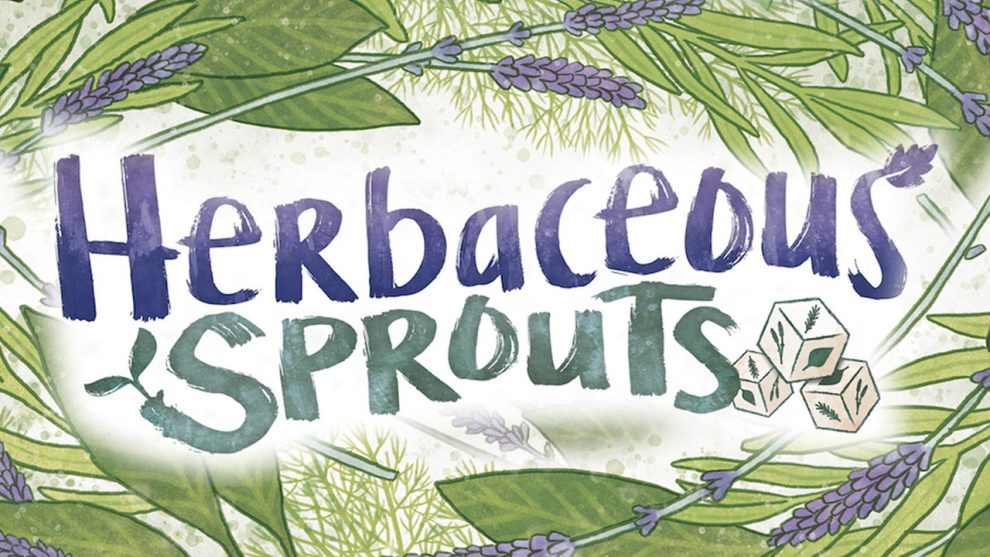Disclosure: Meeple Mountain received a free copy of this product in exchange for an honest, unbiased review. This review is not intended to be an endorsement.
We’re big fans of the games that California based Pencil First Games turns out. Their games are solidly on the lighter end of the spectrum but they’re packed with lush, gorgeous artwork, clever gameplay, and high quality components. Their newest game Herbaceous Sprouts is coming to Kickstarter today and we’ve got a first look at just how it plays. Join us as we dive into a review of Herbaceous Sprouts, based on their previous light card game Herbaceous. In fact, why not check our our review of Herbaceous while you’re at it?
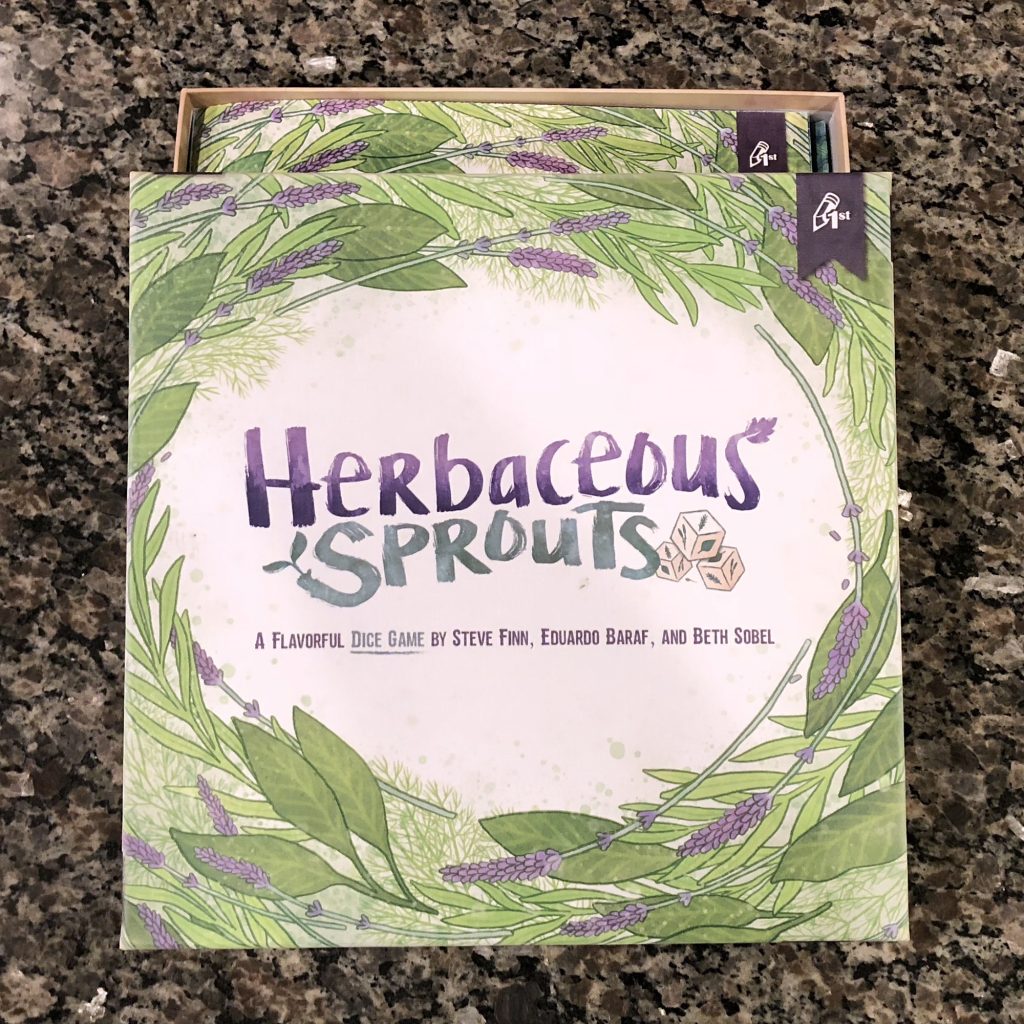
Overview
Herbaceous Sprouts is a dice game in which players collect, manipulate, and group dice in order to plant their “sprout tokens” onto the green point spaces in a shared garden board. The four different colored dice consist of flowers, 5 types of herbs (bay, saffron, lavender, rosemary, and tarragon), and various tools which allow players to perform special actions. The player with the most points at the end of the game is given the title Head Gardener.
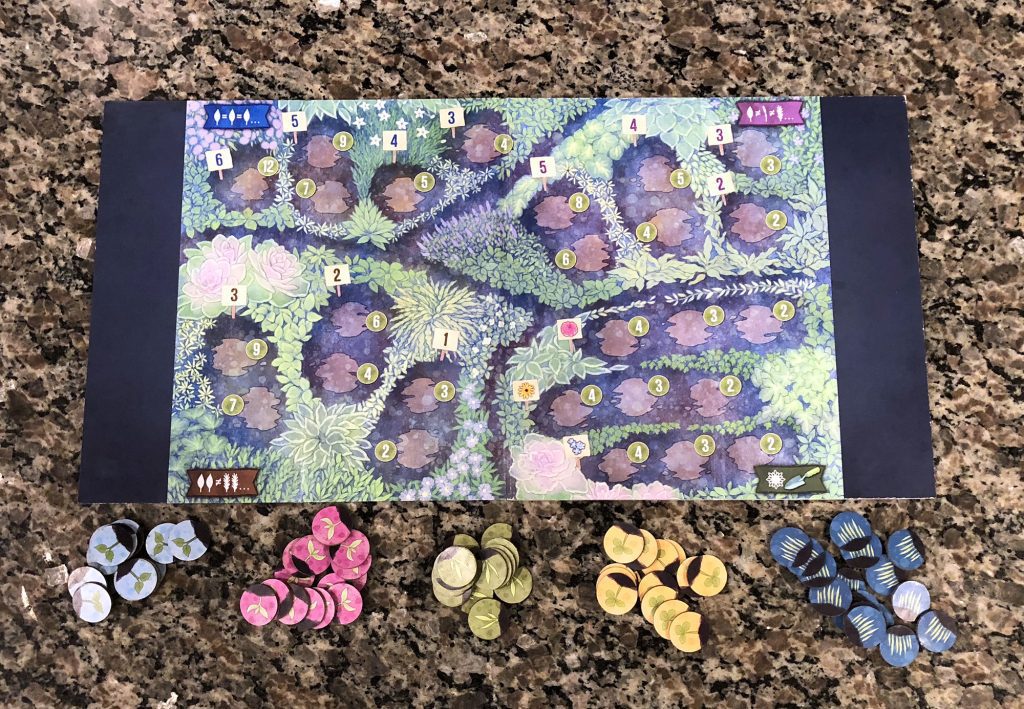
Gameplay
For a game as light as Herbaceous Sprouts, there’s a decent number of moving parts. Tool cards, dice, player boards, tokens, and the Lemonade bonus card (more on that later). There’s also some extra goodies in the shipment we received (solo mode cards, and additional tool cards, etc.), but we’ll leave the reveal of those for the Kickstarter campaign.
Set up the game by dealing out one tool card per player (plus another one) to the Tool Shed, a space near the game board. The start player pulls dice from the bag and rolls them to fill the spaces on each tool card. Then in order players will perform their entire turn as follows.
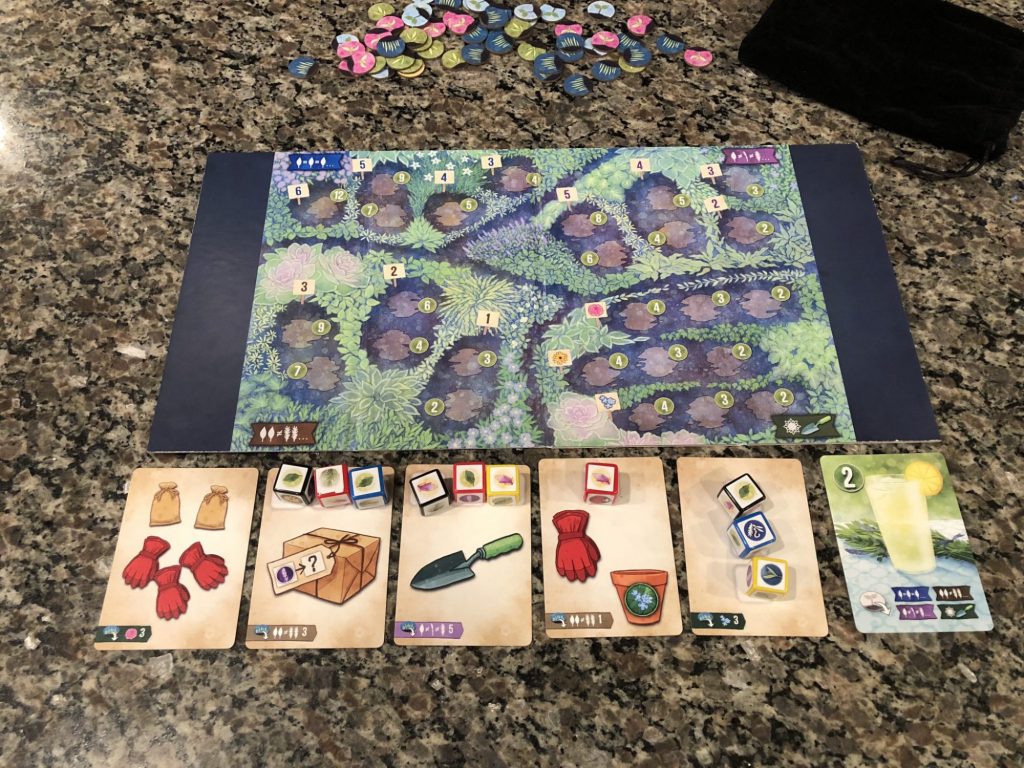
Take a Tool Card
Each player will select a card from the Tool Shed, along with any dice found on that card. Tool cards are the only way that players gain dice, but cards might also contain tools (like gloves, trowels, or watering cans), or seed pots which provide a bonus seed of a certain type.

Add Seed Dice to Wheelbarrow Mat
Add any dice from the chosen tool card to your wheelbarrow mat.
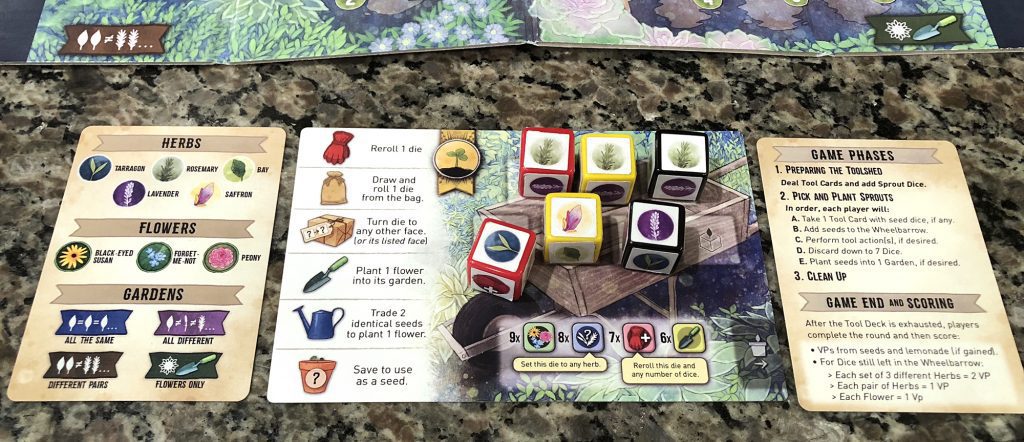
Perform Special Actions
If the chosen tool card offers special actions, players can elect to perform those actions now. Players can also use dice featuring tool icons at this time. Tool cards with unused actions are discarded at the end of every turn with the exception of cards displaying a seed pot. The available special actions include a watering can which allows a player to discard two matching dice and place one sprout token in the flower garden. The trowel allows a player to plant one seed into the flower garden, the wrapped package allows a player to replace one die face with another, while the gardening gloves allow players to reroll dice.
Plant Herb and Flower Seeds to a Garden
During this phase players with enough herb or flower seeds may choose to plant them into one of the 4 quadrants of the common garden. Each quadrant has a different requirement and offers a corresponding point payout.
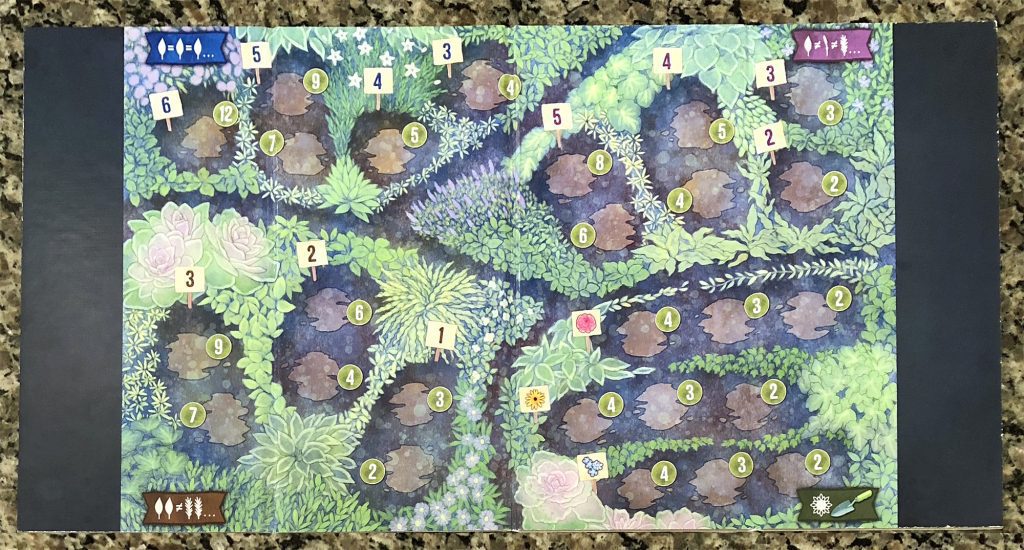
In each case players discard a number of dice (or pairs of dice) to match the requirements in the banner at the corner of that garden and place their sprout token onto the corresponding space.
All the Same Garden (top left)
Players are required to spend multiple dice which all feature the same herb.
All Different Garden (top right)
Players are required to spend multiple dice which all feature different herbs.
Different Pairs Garden (bottom left)
Players must discard pairs of dice which do not match each other.
Flower Garden (bottom right)
Only flowers may be planted here by either discarding a flower seed and a trowel, or by using the watering can tool and discarding two identical herbs.
End of Round
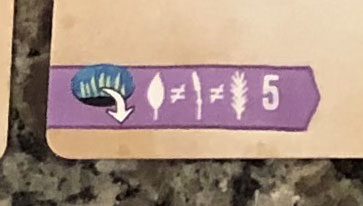
After all but one of the Tool Cards has been selected players must place a “rival sprout” token on the board (2 and 3 player games only). Locate the banner in the bottom left corner of the remaining tool card and place a rival sprout token into the space marked there. In the example to the right, the rival sprout token would be placed in the most valuable space of the “5” section in the “All Different Garden”. If there are still tool cards remaining in the draw pile, play another round. Once the game is over, tally up scores and the player with the most points wins the title of Head Gardener.

Final Thoughts
The original Herbaceous was such a unique and distinctive game that it would be tough to top. And I think this team has done so…mostly. I only add that qualifier because Herbaceous Sprouts, while sharing art style and similar mechanisms, is not the same game.
At its core Sprouts puts players in direct competition with each other, not only for end of game points, but for board real estate. Once a player occupies a space, it’s gone for the remainder of the game.
Herbaceous also doesn’t offer players a way to adjust or mitigate card draws, while Sprouts gives players a number of ways to affect the dice stored on the wheelbarrow mat: from rerolling, to wild card dice, to tool cards which let you explicitly set the face of a die.
All of these minor differences combine to make Herbaceous Sprouts a bit more challenging in gameplay and initial understanding than its little brother…but that’s okay! At the end of the day Sprouts is a fun game, with great artwork, and an engaging theme. What more can you really ask for?


